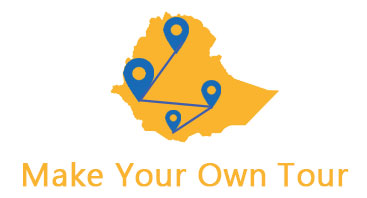Meskel(The Finding Of The True Cross) Festival (27 September)
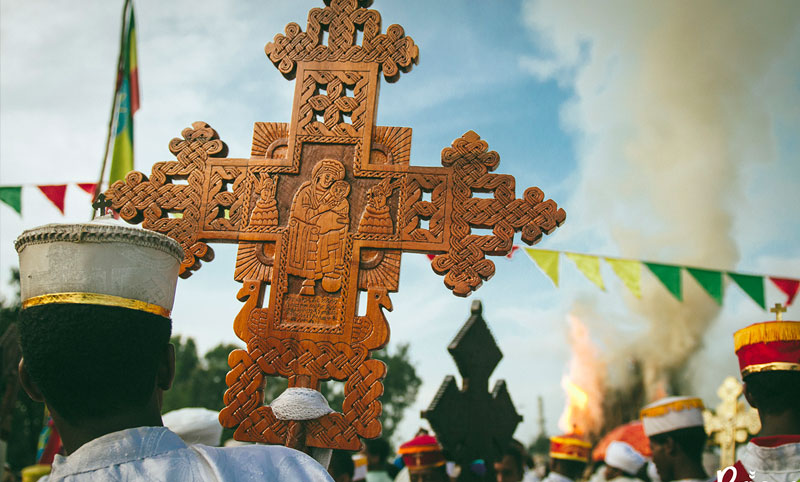
Now registered with UNESCO as an element of the Intangible Cultural Heritage of Humanity, Meskel (27 September) commemorates the alleged 4th century discovery of the True Cross on which Jesus was crucified. The centerpiece of this uniquely Ethiopian festival is the burning of a massive conical pyre called a Damera. The largest ceremony takes place in Addis Ababa’s Meskel Square, where hundreds of thousands of people gather to watch the colorfully dressed priests chant, pray and dance. The most historically poignant site to witness Meskel is Aksum’s Cathedral of Maryam Tsion.
Epiphanies(Timkat)
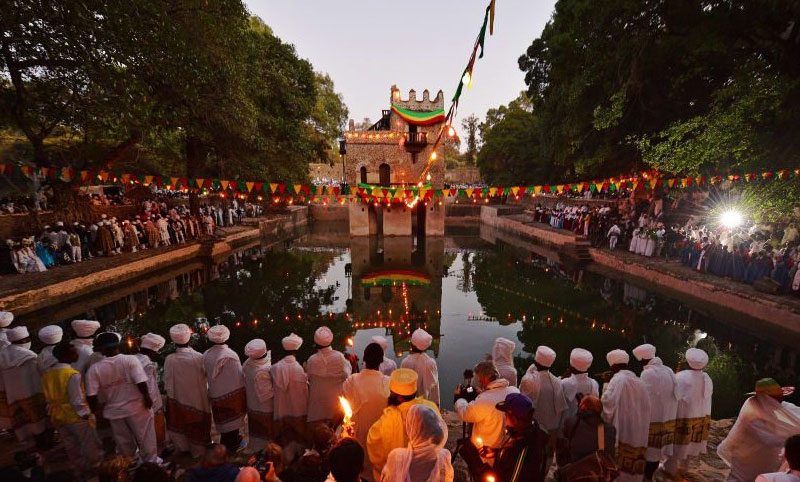
Festival the Ethiopian Orthodox equivalent to Epiphany, is celebrated at churches throughout the country on January 19. The best place to be during Timkat is Gondar, where the festivities culminate in a crowded and colorful afternoon re-enactment of the first baptism at the 17th century Fasil’s Pool, which is filled with water for the occasion.
Ethiopian Christmas(Gena or Ledet) (7 January)
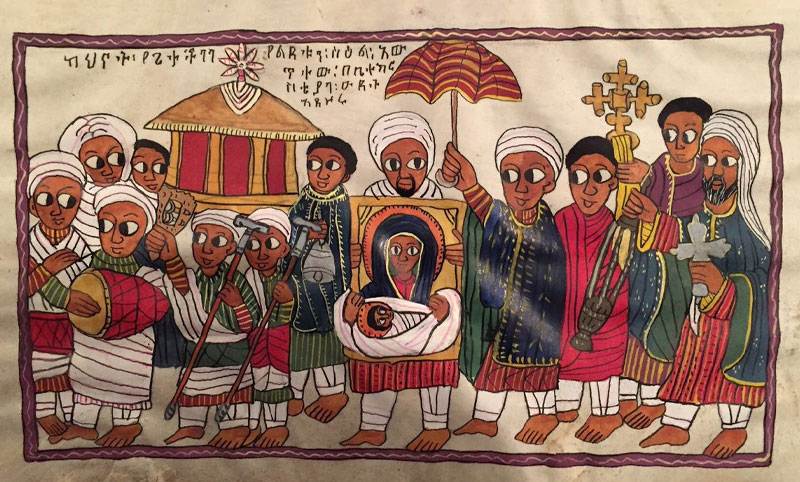
The Ethiopian equivalent to Christmas, is preceded by an all-night vigil following 43 days of fasting that culminate. It is a family-oriented holiday, but in some areas it is marked by traditional dancing or a hockey-like game called Yegenna Chewata, supposedly played by the local shepherds on the night Jesus was born. It is traditional to eat the national dish doro wot (chicken stew) over Gena.
Eid-al-Fitr Festivals

The usual Islamic holidays are celebrated in Ethiopia, especially in and around Harar. At the end of the fasting month of Ramadan, the first day of the month of Shewal is celebrated as Eid-al-Fitr. This is followed by six-days of fasting. The 8th day of the month of Shewal is Shewal Eid – a special Harari cultural festival, consisting of 24 hours of celebrations.
Ethiopian New Year (11 September)

A more secular occasion is Enkutatash, or Ethiopian New Year (11 September), which falls on the date that the Queen of Sheba supposedly arrived back in Aksum after having visited King Solomon in Jerusalem. It is celebrated vigorously throughout the country by people of all faiths.
Fasika “Ethiopian Easter”
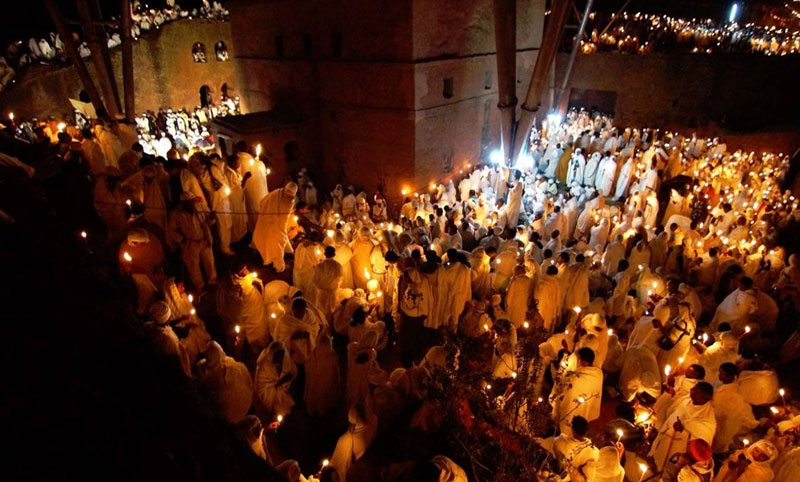
Marks a very important interest and enthusiasm among the Christian community in Ethiopia being the last major religious festival. Believers of the Ethiopian Orthodox church await its arrival with great eager passing through a long lent period of 55 days where no animal product of meat, milk or egg shall not be consumed during this period.
One week before Easter is called “HeMamat” a time to remember the suffering, beatings, wounds and pains of Jesus. In this week, people would not laugh, kiss, joke or make any fun but try to be on strict remembrance of those troubles of the Lord.
Two days before Easter is called day of crucify and this normally falls on Friday. On this day people spend the whole time bowing down before God as much as they can bow down depending on their strength, age and health issue to clean themselves from any sin. Some do 1000 times some even more.
On the eve of Easter almost all believers shall spend the night in the church doing their last religious sacrifices. Ceremonies in the church are so colorful and bygone that one would feel to be in time past at a Jew synagogue.
Priest & deacons according to their ranks with their colorful Levite looking costume will be chanting and praying all the night long. All the instruments used are very traditional ones such as the leather made drums and also the cross-shaped prayer sticks of priests.
A week after Easter is also a colorful festival called “Dagme Tinsae”, which marks the ascension of Jesus to heaven. This is also equally celebrated with the main Easter festival.
Easter is very much attractive to be attended in the historical church of the country but more usually spend in the rock-churches of Lalibela or the ancient & first church of St. Mary of Zion church in Axum.
Feast Of St Marry Or Hidar Tsion (Celebration of St. Mary’s day)
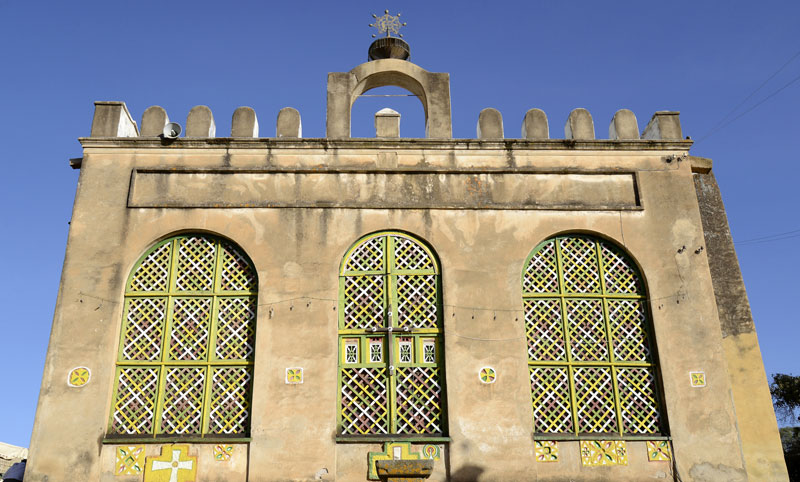
This is one of the most popular festivals in the country for The virgin & risqué and its most venerated of all religious figures in Ethiopia. About 33 days are annually dedicated to different celebrations in commemoration of Mary. “Hidar Zion” is associated with the presence of the Ark of the Covenant in Axum and the belief that the Ark itself is a symbol of her womb. Falling on 30th November every year, this festival is attended by thousands of people from foreign countries and all over Ethiopia, making it one of the most blissful annual pilgrimages in country, the “Blessed city of the Ethiopians”.

